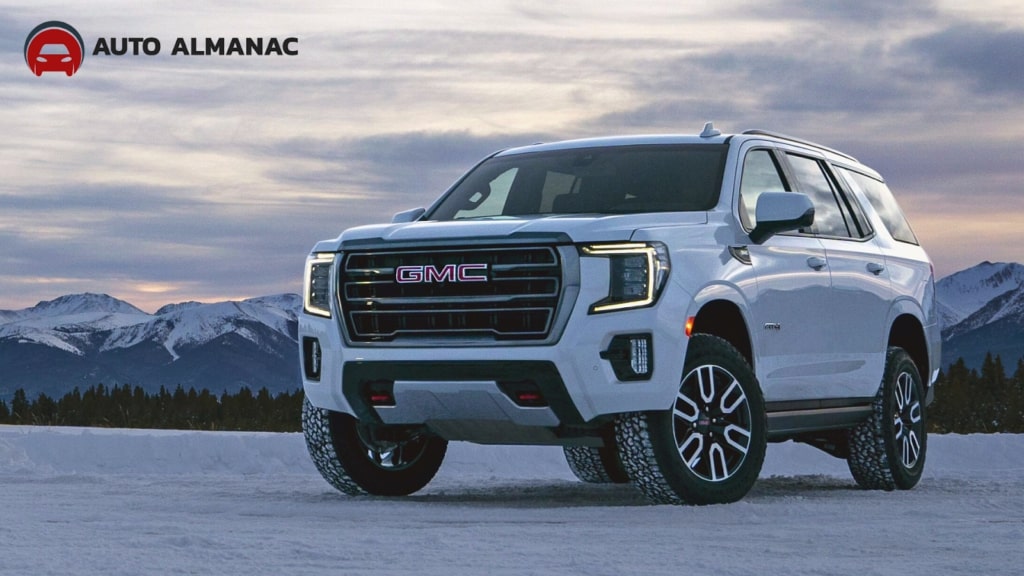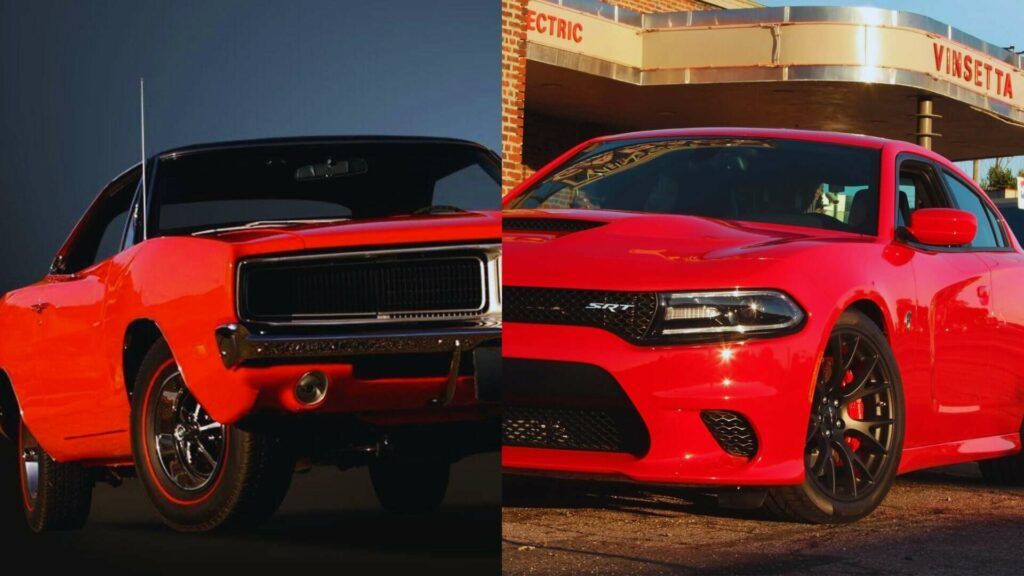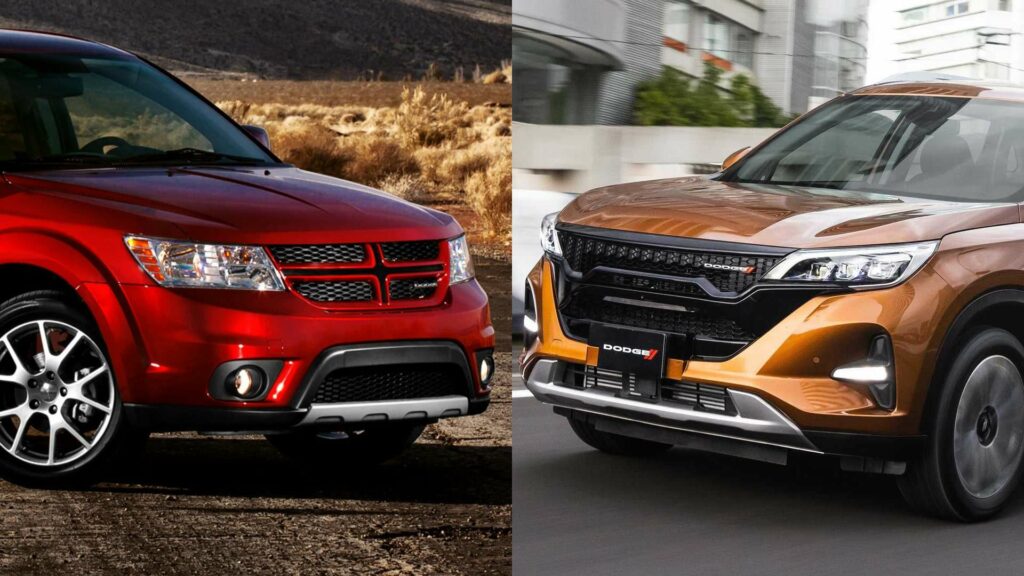We’ve already covered the gas types of many vehicles made by General Motors (GM), from the Chevy Tahoe to the GMC Sierra.
Now, it’s time to do the same thing for the GMC Yukon, a full-size luxury SUV that spans five different generations worth of engines that each have their own fuel requirements.
So whether you’re in the market for the top GMC Yukon Denali trim or any of its other trims, it’s important to familiarize yourself with what type of gas this GMC SUV can and cannot take.
What kind of gas does a GMC Yukon take?
Most GMC Yukon models are capable of taking regular 87-octane gasoline, except for 1st-gen models equipped with 8.1-liter V8s and newer-gen models with 6.2-liter V8s that require premium 93-octane gasoline instead.
Diesel-powered GMC Yukon models can take ultra-low sulfur diesel fuel (max 15 ppm).

The GMC Yukon is produced mostly as a gasoline-powered vehicle, though the 1st-generation and 5th-generation models actually do come with diesel engine options of their own.
As for most of the models, however, you should only be filling them up with unleaded gasoline with a minimum octane rating of 87.
The only time that it’s required to switch to premium 93-octane fuel on the GMC Yukon is if you specifically have the 2nd-generation model’s 8.1-liter V8 or any of the newer generation’s 6.2-liter V8 engines.
Also, one instance wherein it’s highly recommended (not required) to switch to either 91 or 93-octane gasoline is when you’re going to use the GMC Yukon for heavier tasks, such as towing.
On the other hand, the diesel variants should obviously be only filled up with diesel fuel. However, they specifically require the use of ultra-low sulfur diesel (ULSD) with a maximum of 15 ppm in sulfur content.

There are still some other differences between each GMC Yukon model’s compatibility with fuel, such as E-85 or Flex-Fuel capability.
Thus, we’ll be listing and further discussing the fuel requirements of each GMC Yukon generation in the next part, one engine option at a time.
GMC Yukon Fuel Requirements Based on Generation and Engine Option
Most engine options of all GMC Yukon generations require a minimum of 87-octane gasoline. However, those equipped with either an 8.1-liter V8 or a 6.2-liter V8 require premium 93-octane fuel.
GMC Yukon models with diesel engines require ultra-low sulfur diesel fuel (ULSD) with a maximum of 15 ppm.
1st-Generation GMC Yukon (GMT400) (1992 to 2000)

| Engine Option | Minimum Fuel Requirement |
| 5.7L 350 TBI V8 (1992 to 1995) | 87-Octane Gasoline (Regular) |
| 5.7L Vortec 5700 V8 (1996 to 2000) | 87-Octane Gasoline (Regular) |
| 7.4L Vortec 7400 V8 (4-Door) | 87-Octane Gasoline (Regular) |
| 6.5L Detroit Diesel V8 Turbo | Ultra-Low Sulfur Diesel (Max 15 ppm) |
The 1st-generation GMC Yukon debuted on the GMT400 platform in 1991 for the 1992 model year, and all its engines, excluding the diesel one, can run on regular 87-octane gas.
Unlike its pickup truck counterpart, the Sierra, the GMT400 Yukon actually never came with a V6 engine, and this remains true to this day.
Other than that, the majority of the engines used in the 1st-gen Sierra can also be found on the 1st-gen Yukon.
The base engine was a 5.7-liter 350 TBI V8 made by Chevrolet, though this eventually evolved into the 5.7-liter Vortec V8 in 1996.
A 7.4-liter V8 trim was also available, but only if you opt for the bigger 4-door model.
The sole diesel option for the 1st-gen Yukon came in the form of the turbocharged 6.5-liter Detroit Diesel V8, which can run on ultra-low sulfur diesel with no more than 15 ppm in sulfur content.
The other 6.2-liter Detroit Diesel engine found in the 1st-gen Sierra was not offered for the 1st-gen GMC Yukon.
2nd-Generation GMC Yukon (GMT800) (2000 to 2006)

| Engine Option | Minimum Fuel Requirement |
| 4.8L Vortec 4800 V8 | 87-Octane Gasoline (Regular) |
| 5.3L Vortec 5300 V8 | 87-Octane Gasoline (Regular)(E-85/Flex-Fuel Capable) |
| 6.0L Vortec 6000 V8 | 87-Octane Gasoline (Regular) |
| 8.1L Vortec 8100 V8 (Yukon XL) | 93-Octane Gasoline (Premium) |
The 2nd-generation GMC Yukon, which came about in the year 2000, offered four different gasoline engines under the GMT800 platform.
Unlike the previous generation, no diesel engine option was offered for the 2nd-gen Yukon, allowing us to solely focus on the octane rating that’s required for each of its engine options.
The 4.8-liter, 5.3-liter, and 6-liter Vortec V8 options can all run on regular 87-octane gasoline, though the 8.1-liter Vortec V8 engine that powers the bigger Yukon XL model requires premium 93-octane instead.
It’s also worth noting that the 5.3-liter V8 option is capable of using as much as 85% ethanol blended in gasoline, otherwise known as E-85 or “Flex-Fuel”.
3rd-Generation GMC Yukon (GMT900) (2007 to 2014)

| Engine Option | Minimum Fuel Requirement |
| 4.8L Vortec 4800 V8 | 87-Octane Gasoline (Regular) |
| 5.3L Vortec 5300 V8 | 87-Octane Gasoline (Regular)(E-85/Flex-Fuel Capable) |
| 6.0L Vortec 6000 V8 | 87-Octane Gasoline (Regular) |
| 6.0L Vortec 6000 V8 (2-Mode Hybrid) | 87-Octane Gasoline (Regular) |
| 6.2L Vortec 6200 V8 | 93-Octane Gasoline (Premium)(E-85/Flex-Fuel Capable) |
GMC Yukon models made between 2007 and 2014 all belong to the 3rd generation (GMT900) of the full-size SUV, which now features E-85/Flex-Fuel capability for some of its engines.
The first three Vortec V8 engines of the last generation can also be found in this one, and all of them keep their 87-octane gasoline requirement.
The 5.3-liter V8 also keeps its E-85/Flex-Fuel capability for the 3rd-generation model.
Furthermore, the 6-liter V8 option has been given a 2-mode hybrid version in 2008, making it the first GMC Yukon model to ever be powered by a hybrid powerplant.
The only other 3rd-generation Yukon engine that we haven’t talked about yet is the 6.2-liter Vortec V8, which is the heart of the top-of-the-line Yukon Denali trim.
Not only was it made to be flex-fuel capable, but it’s also the only engine option that requires premium 93-octane gas to avoid engine knock and maintain optimal performance.
4th-Generation GMC Yukon (GMT K2UG) (2015 to 2020)

| Engine Option | Minimum Fuel Requirement |
| 5.3L EcoTec3 V8 | 87-Octane Gasoline (Regular)(E-85/Flex-Fuel Capable) |
| 6.2L EcoTec3 V8 | 93-Octane Gasoline (Premium) |
The 4th-generation GMC Yukon debuted in early 2014 for the 2015 model year with a fresh set of engine options, albeit only limited to two of them.
Given the GMT K2UG designation, the 4th-gen GMC Yukon comes with two different EcoTec3 engines, a base 5.3-liter V8 and a bigger 6.2-liter V8 for the Denali trim.
As the smaller of the two engines, the 5.3-liter V8 is capable of taking regular 87-octane gasoline. On top of that, it also comes with E-85/Flex-Fuel capability from the factory.
The 6.2-liter V8 option, on the other hand, does not come with a Flex-Fuel version and requires premium 93-octane gasoline from the pump.
5th-Generation GMC Yukon (GMT T1UG) (2021 to 2023/Present)

| Engine Option | Minimum Fuel Requirement |
| 5.3L EcoTec3 V8 | 87-Octane Gasoline (Regular) |
| 6.2L EcoTec3 V8 | 93-Octane Gasoline (Premium) |
| 3.0L Duramax Inline-6 (I6) Turbo Diesel | Ultra-Low Sulfur Diesel (Max 15 ppm) |
The 5th generation of the GMC Yukon, given the designation “GMT T1UG”, is now the current iteration of the SUV ever since the Yukon nameplate was first used in 1991.
The list of engine options for the current Yukon model is almost identical to the previous 4th-gen model, but now includes GM’s new turbocharged 3-liter Duramax I6 diesel engine.
This Duramax diesel engine requires ultra-low sulfur diesel with a sulfur content not exceeding 15 ppm. It’s also the same diesel engine offered in other GM vehicles like the Chevy Silverado.
The fuel requirements for the 5th-gen Yukon’s gasoline engine options pretty much stay exactly as they were for the previous model, which is 87-octane gas for the 5.3-liter V8 and 93-octane gas for the 6.2-liter V8.
Types of Gasoline/Fuel That Can Be Used in a GMC Yukon
GMC recommends using TOP TIER Gasoline for the GMC Yukon for its engine-cleaning additives.
The GMC Yukon is also compatible with reformulated gasoline (RFG), while certain models can also take E-10/E-15 (Non-Flex-Fuel models), E-85 (Flex-Fuel models), and B20 biodiesel (diesel models).
TOP TIER Gasoline (GMC’s Recommendation)
TOP TIER gasoline is the go-to fuel for the GMC Yukon for two main reasons. Not only is it recommended by GMC itself, but it also contains engine-cleaning detergent additives that any internal combustion engine can benefit from.

Compared to other brands, fuel brands with the TOP TIER label contain a higher level of detergency that’s both safe and effective in protecting your engine against the build-up of deposits or gunk.
As a result, TOP TIER gasoline’s emphasis on fuel quality helps you maintain your engine’s internal components so that you always get the most optimal performance out of your vehicle.
But it doesn’t just stop there. If you ever own or plan on buying a diesel variant of the GMC Yukon, you’ll be glad to know that there’s also TOP TIER diesel fuel with the same high-quality detergent additives mixed in.

The only downside to TOP TIER diesel is that it can be trickier to find compared to its gasoline counterpart, as only a select few retailers in North America sell it at this point in time.
Still, if you’re looking to find any TOP TIER-branded fuel in your area, you can easily spot them by looking for their respective labels on the gas pump.

Reformulated Gasoline (RFG)
As one of the more modern types of fuel out there, reformulated gasoline (RFG) is specifically made to burn cleaner compared to conventional gasoline sold at the pump.
Reformulated gasoline’s cleaner emissions are all thanks to its exclusion of toxic ingredients that are notorious for polluting the air with toxins and contributing to the formation of ozone.
If your area is known to have a higher concentration of air pollution and smog compared to other places, then it’s more likely that reformulated gasoline is sold at your local gas stations to mitigate that problem.
Due to such benefits, the use of reformulated gasoline has been significantly growing over the years. In fact, over 25% of all gasoline sold in the US today is reformulated gasoline, according to the EPA.
Up to 10 or 15% Ethanol Blends (E-10/E-15) (Non-Flex-Fuel Models)
From the factory, the GMC Yukon is actually capable of taking some amount of ethanol content, and yes, we’re referring to even non-Flex-Fuel models.
However, the exact ethanol percentage varies depending on the year that your GMC Yukon was manufactured.

The EPA states that vehicle models manufactured before 2011 can only take up to 10% ethanol blended in gasoline, which is otherwise known as “E-10”.
Otherwise, vehicle models produced after 2011 have been given the go signal to use as much as 15% ethanol blended in gasoline, or “E-15”.
Both E-10 and E-15 are two of the most common types of ethanol blends, and it isn’t surprising that just about any gasoline-powered GMC Yukon model can take them, given that you bear in mind the “2011 rule”, of course.
Vehicles that can take E-10 or E-15 blends come with black fuel caps with the corresponding fuel limitations printed on them, as shown below.

Up to 85% Ethanol Blends (E-85) (Flex-Fuel Models)
Throughout the GMC Yukon’s production run, several models have been equipped with engines that are capable of using gasoline with as much as 85% gasoline, otherwise known as “E-85” or “Flex-Fuel”.
As a recap of the flex-fuel models we’ve discussed in the “fuel requirements” section, we’ll be listing what these models are below.
| GMC Yukon Generation(E-85/Flex-Fuel) | Engine Option |
| 2nd Generation (GMT800) | 5.3L Vortec 5300 V8 (2002 to 2006) |
3rd Generation (GMT900) | 5.3L Vortec 5300 V8 (2007 to 2014) |
| 6.2L Vortec 6200 V8 (2009 to 2011) | |
| 4th Generation (GMT K2UG) | 5.3L EcoTec3 V8 (2015 to 2020) |
To confirm that the GMC Yukon that you’re looking at is indeed flex-fuel capable, you can check if it has a yellow fuel cap with “E-85” printed on it.

Up to 20% Biodiesel Blends (B20) (Duramax Diesel Models)
We’ve mentioned earlier that the diesel variants of the GMC Yukon require ultra-low sulfur diesel.
But in addition to that, the newer 3-liter Duramax diesel engine that the 5th-gen Yukon offers can actually run on as much as 20% biodiesel (B20) as well.

Compared to conventional diesel, biodiesel is a more renewable type of fuel that burns cleaner and reduces carbon dioxide emissions
This makes it a more environmentally-friendly choice of diesel fuel should the vehicle be compatible with it.
However, older GM diesel engines such as the 6.5-liter Detroit Diesel V8 of the 1st-gen Yukon were not factory certified to run on biodiesel.
Before using any sort of biodiesel fuel on your diesel-powered vehicle, be sure to check its owner’s manual for possible limitations on the type of fuel it can and cannot use.
Types of Gasoline/Fuel To Avoid for the GMC Yukon
Avoid filling up the GMC Yukon with gasoline containing MMT, gasoline containing materials like methanol and metal-based additives, and gasoline with a lower octane rating than the minimum required for a specific engine option.
Gasoline Containing MMT (Methylcyclopentadienyl Manganese Tricarbonyl)
Many different fuel additives in today’s industry are marketed to give all sorts of benefits to your engine, yet MMT is one of them that actually does more harm than good.

MMT is an octane booster that’s usually used in both unleaded and leaded gasoline in the US and Canada, though it’s now mostly banned for use in most places because of its downsides.
The main downsides to using MMT are that it’s pretty toxic to the environment when emitted from your vehicle’s exhaust and causes damage to the spark plugs and other emission system components.
With cons like these, it’s no wonder that the majority of gasoline brands have chosen to go MMT-free.
Thus, it’s also easy to understand why the GMC Yukon and many other vehicles from other manufacturers shouldn’t have a single drop of MMT in their gas tanks.
Gasoline with Added Materials (Methanol, Metal-Based Additives)
Gasoline that contains certain materials such as methanol or any type of metal-based additive should be avoided for the GMC Yukon, as its engines are not built to handle running on such materials.
If you’re going to use gasoline with any sort of additive in it anyway, you should specifically go for TOP TIER gasoline that already contains safe and effective engine-cleaning additives from the get-go.
Alternatively, you can also go for the fuel additive that GM recommends, which is ACDelco’s Fuel System Treatment Plus.
Depending on whether your GMC Yukon is a gasoline or diesel variant, ACDelco’s additive also comes in both gasoline and diesel formulations.

What will happen if I use the wrong gas type?
Use of the wrong gas type may decrease engine performance, cause the engine to knock, and potentially cause damage to its internals.
This can happen if you put gasoline that has too low of an octane rating than what your vehicle’s engine requires.
Why do I hear a knocking noise from the engine after refueling?
A knocking noise coming from the engine after you’ve just refueled may mean that you’ve either put the wrong fuel type or the fuel is contaminated.
Other issues like incorrect timing and air-fuel ratio can also cause engine knock, so it’s worth getting your vehicle properly diagnosed by a mechanic.
Does the GMC Yukon get good gas mileage?
Most GMC Yukon models aren’t really known to get good gas mileage, as even the most fuel-efficient 2023 gasoline models can only achieve 20 mpg at best.
However, opting for the 3-liter Duramax diesel variant of the GMC Yukon gives you the best fuel efficiency for the SUV at up to 27 combined mpg.
GMC Yukon Gas Mileage Per Generation
Gasoline-powered GMC Yukon models achieve 10 to 23 combined mpg depending on the generation.
Diesel-powered GMC Yukon models get about 14 to 15 combined mpg (1st-gen Detroit Diesel models) and 21 to 27 combined mpg (5th-gen Duramax diesel models).
1st-Generation GMC Yukon Gas Mileage (GMT400) (1992 to 2000)
| Engine Option | Lowest Combined MPG | Highest Combined MPG |
| 5.7L 350 TBI V8(1992 to 1995) | 12 | 13 |
| 5.7L Vortec 5700 V8(1996 to 2000) | 13 | 15 |
7.4L Vortec 7400 V8 | 10(No Specific GMC Model) | 14(No Specific GMC Model) |
| 6.5L Detroit Diesel V8 Turbo | 14 | 15 |
2nd-Generation GMC Yukon Gas Mileage (GMT800) (2000 to 2006)
| Engine Option | Lowest Combined MPG | Highest Combined MPG |
| 4.8L Vortec 4800 V8 | 13 | 18 |
| 5.3L Vortec 5300 V8 | 12 | 15 |
| 5.3L Vortec 5300 V8(E-85/Flex-Fuel) | 10 | 12 |
| 6.0L Vortec 6000 V8 | 11 | 15 |
| 8.1L Vortec 8100 V8(Yukon XL) | 7 | 9 |
3rd-Generation GMC Yukon Gas Mileage (GMT900) (2007 to 2014)
| Engine Option | Lowest Combined MPG | Highest Combined MPG |
| 4.8L Vortec 4800 V8 | 16 | 16 |
| 5.3L Vortec 5300 V8 | 15 | 21 |
| 5.3L Vortec 5300 V8 (E-85/Flex-Fuel) | 11 | 16 |
| 6.0L Vortec 6000 V8 | 10 | 16 |
| 6.0L Vortec 6000 V8 Hybrid | 20 | 23 |
| 6.2L Vortec 6200 V8 | 14 | 18 |
| 6.2L Vortec 6200 V8(E-85/Flex-Fuel) | 10 | 15 |
4th-Generation GMC Yukon Gas Mileage (GMT K2UG) (2015 to 2020)
| Engine Option | Lowest Combined MPG | Highest Combined MPG |
| 5.3L EcoTec3 V8 | 15 | 22 |
| 5.3L EcoTec3 V8(E-85/Flex-Fuel) | 11 | 16 |
| 6.2L EcoTec3 V8 | 14 | 20 |
5th-Generation GMC Yukon Gas Mileage (GMT T1UG) (2021 to 2023/Present)
| Engine Option | Lowest Combined MPG | Highest Combined MPG |
| 5.3L EcoTec3 V8 | 16 | 20 |
| 6.2L EcoTec3 V8 | 13 | 19 |
| 3.0L Duramax Inline-6 (I6) Turbo Diesel | 21 | 27 |
What’s the gas tank size of a GMC Yukon?
The GMC Yukon’s gas tank size/capacity varies from 26 to 39 US gallons (98.4 to 147.6 liters) depending on the generation, model year, and trim level.
| GMC YukonGeneration/Model Years | Trim Level | Gas Tank Size/Capacity (US Gallon/Liter) |
| 1st Generation (GMT400)(1992 to 2000) | All 1992 to 1994 Trims | 30 gal (113.6 l) |
| 1995 2-Door Trims | 30 gal (113.6 l) | |
| 1995 4-Door Trims | 30.5 gal (115.5 l) | |
| All 1996 to 1997 Trims | 30 gal (113.6 l) | |
| All 1998 to 1999 Trims | 29.5 gal (111.7 l) | |
| All 2000 Trims | 26 gal (98.4 l) | |
| 2nd Generation (GMT800)(2000 to 2006) | All 4-Door Trims (Including Fleet Trim) | 26 gal (98.4 l) |
| Yukon XL 1500 (Half-Ton) | 32.5 gal (123 l) | |
| Yukon XL 2500 (3/4-Ton) | 38.5 gal (145.7 l) | |
| 3rd Generation (GMT900)(2007 to 2014) | All Yukon Trims | 26 gal (98.4 l) |
| Yukon XL Denali | 31 gal (117.3 l) | |
| All Yukon XL 1500 Trims | 31 gal (117.3 l) | |
| All Yukon XL 2500 Trims | 39 gal (147.6 l) | |
| 4th Generation (GMT K2UG)(2015 to 2020) | All Yukon Trims | 26 gal (98.4 l) |
| All Yukon XL Trims | 31 gal (117.3 l) | |
| 5th Generation (GMT T1UG)(2021 to 2023/Present) | All Yukon Trims | 24 gal (94.8 l) |
| All Yukon XL Trims | 28 gal (106 l) |
How much does it cost to fill up a GMC Yukon?
Gasoline-powered GMC Yukon models with 24 to 39-gal gas tanks will cost $80.6 to $131 to fill up with regular gas at the current US average price of $3.357/gal.
Diesel-powered GMC Yukons with 24 to 30-gal gas tanks will cost $105.8 to $132.3 to fill up with diesel at the average price of $4.409/gal.




